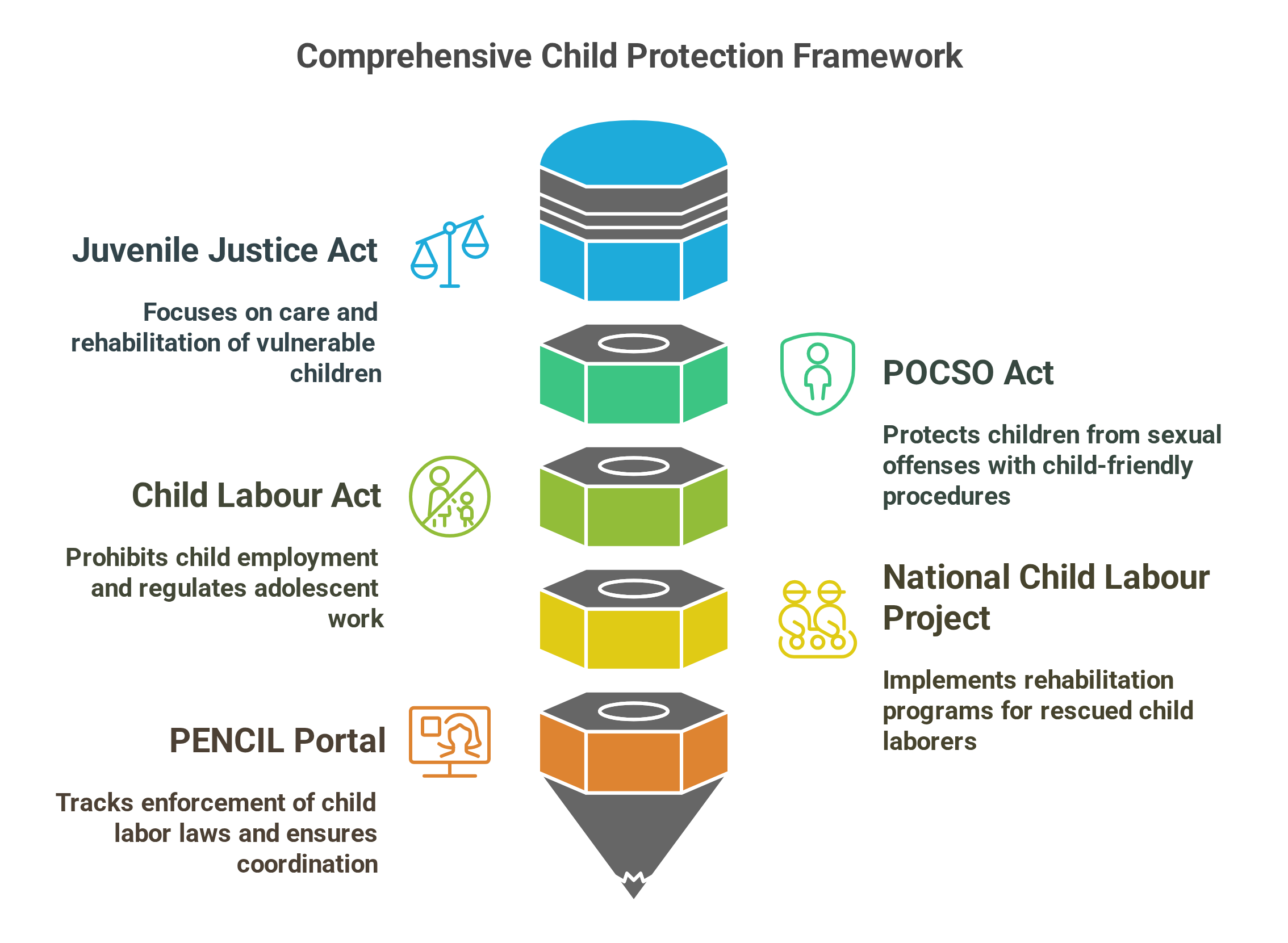Context:
The Supreme Court of India has issued a strong advisory to parents across the country, emphasizing the need for increased vigilance regarding their children due to the rising concerns over child trafficking networks. In the case of Pinki v. State of Uttar Pradesh and Anr., the Court overturned the bail orders previously granted by the Allahabad High Court to 13 individuals accused of participating in an inter-state child trafficking racket.
Case Background:
- The Supreme Court was hearing criminal appeals challenging the Allahabad High Court’s orders granting bail to several individuals accused under Sections 363 (kidnapping), 311 (repeated offender), and 370(5) (trafficking of minors) of the Indian Penal Code, 1860.
- The case involves a suspected large-scale child trafficking network allegedly engaged in the kidnapping, purchase, and sale of minors, particularly from economically disadvantaged backgrounds.
Judicial Directions and Outcome:
The Supreme Court set aside the High Court’s bail orders and directed all accused to surrender before the Committal Court for immediate judicial custody.
The Court issued the following directions:
- Trial to be completed within six months.
- Appointment of Special Public Prosecutors.
- Provision of witness protection for victim families.
- Police to trace and apprehend absconding accused within two months.
Further, to address child trafficking linked to healthcare institutions, the Court ruled that hospitals found negligent in safeguarding newborns will face immediate suspension of license and legal action.
Other Key Directions by the Supreme Court:
- Presumption of Trafficking or Abduction: All missing children’s cases must be treated as potential abduction or trafficking cases until proven otherwise.
- Mandatory Reporting: Police and Anti-Human Trafficking Units (AHTUs) must report every human trafficking case promptly.
- Establish State-Level Anti-Human Trafficking Bureaus: Each state capital must have a Bureau dedicated to coordinating anti-trafficking efforts.
- Strengthen Child Welfare Committees (CWCs): Ensure the presence of well-functioning CWCs in every district with trained personnel.
- Set Up Child-Friendly Courts: States are encouraged to replicate the successful models of Telangana and West Bengal to create safe environments for child victims.
- Enhance Victim Support Systems: Implement trauma-informed care, legal aid, and rehabilitation services for rescued children.
- Encourage Community Policing: Promote community involvement in surveillance, early detection, and reporting of child trafficking cases.
- NGO Collaboration: Foster coordination with NGOs for rescue, rehabilitation, and awareness campaigns at the grassroots level.
Legal Frameworks and Government Schemes in Force:
- Juvenile Justice (Care and Protection of Children) Act, 2015: Focuses on the care, protection, and rehabilitation of vulnerable or trafficked children.
- POCSO Act, 2012: Provides a comprehensive legal framework for protecting children from sexual offenses, with special child-friendly procedures.
- Child and Adolescent Labour (Prohibition and Regulation) Act, 1986: Prohibits employment of children under 14 and restricts hazardous work for adolescents aged 14–18.
- National Child Labour Project (NCLP): Implements district-based rehabilitation programs for rescued child labourers.
- PENCIL Portal: A centralized platform to track enforcement of child labour laws and ensure inter-departmental coordination.









